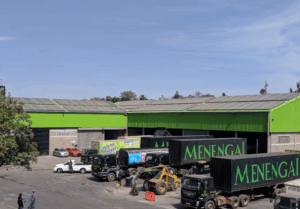Oversupply, Tough Economy Exert Pressure On Prime Property Rents And Values

Prime residential rents and sale prices in Nairobi declined in the first half of 2019 amid continued oversupply of high-end developments in some locations and a credit crunch that has affected money circulation and spending power.
Knight Frank’s Kenya Market Update – 1st Half 2019 shows prime residential prices fell by 1.8% over the period, increasing the annualised decline to 6.7% in the year to June. Prime residential rents reduced by 1.7%, taking the annualised decline to 3.3% in the year to June.
“These factors have transformed the market in favour of buyers and tenants, which has been exacerbated by multinationals continuing to downsize whilst there are fewer expatriates relocating to Kenya, impacting negatively on the niche market,” the report notes.
In the retail market, rents for prime spaces in shopping malls decreased by 5.9% in the period to US$4.8 per square foot per month. Landlords remained under considerable pressure to provide concessions to attract new tenants and retain existing occupiers. The pressure was compounded by tough economic conditions that have left most consumers with less disposable incomes, directly impacting on retailers.
Read: Safaricom Using EACC To Stop Airtel-Telkom Merger – Kibati
Occupancy levels in established malls remained high at 90% in the first half while new retail developments (completed in the last 18 months) recorded occupancy levels of between 45% and 55%. A trend was noted in the period where current and new tenants are opting to take up space within extensions in established malls to tap into the existing clientele rather than open shop in new retail centres. Overall, footfall increased over the six months due to the presence of fully operational anchor tenants in most shopping malls.
In the office market, prime rents in Nairobi remained unchanged in the first half of 2019 at US$1.3/sq ft/month, with the absorption of Grade A and B space declining by 8% compared to the second half of 2018.
The report states that some landlords are providing concessions such as longer fit-out periods, partial contributions towards tenant fit-outs or giving discounted rentals so as to retain existing tenants and attract new ones. This appears to be a consistent theme across the market.
Nonetheless, the office market has benefitted from shared workspace providers on the back of demand from small and medium enterprises, maturing start-ups and multinational firms entering the country. Serviced office space is growing in popularity owing to the flexibility it provides in comparison with traditional office accommodation.
The niche market is expected to continue recording growth over the next few years as new entrants establish themselves whilst existing providers expand.
In the period under review, several serviced office providers opened new facilities, with home-grown coworking space provider Workable opening a 12,000-sq ft shared workspace facility in January at Sanlam Towers, while Nairobi Garage opened its third 14,000-sq ft co-working facility at The Watermark Business Park, Karen, in February.
For all the latest technology and business news from Kenya and the world, follow us on Twitter and like us on Facebook.






